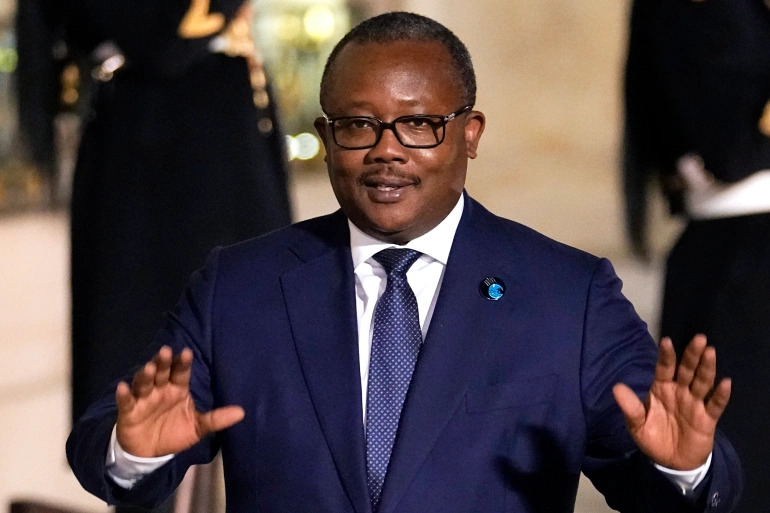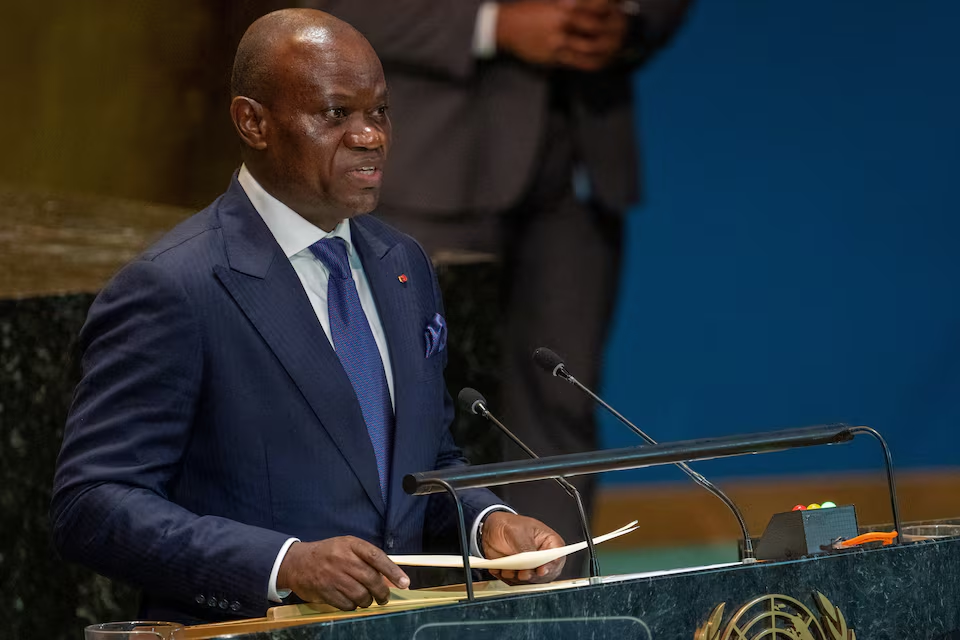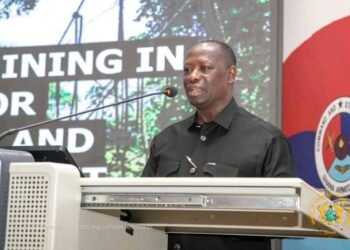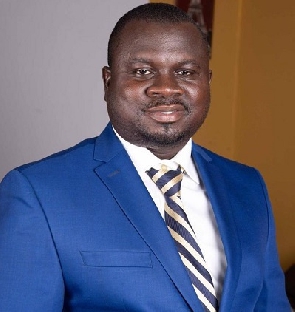President Donald Trump has extended a formal invitation to the heads of state from Gabon, Guinea-Bissau, Liberia, Mauritania, and Senegal, signaling a shift in the U.S. approach toward Africa.
The visit, set in Washington this week, underscores Trump’s growing interest in the continent’s strategic and economic relevance, particularly in trade, critical minerals, and regional security.
Despite past criticisms of African nations, Trump now presents Africa as ripe with opportunity. “Africa is now on the radar of the Trump administration. The continent is recognized as a place to make deals,” said Professor Suleymane Bachir Diagne of Columbia University in New York.
This pivot is striking given Trump’s earlier remarks in January 2018, when he referred to several African countries and Haiti as “shithole countries” during a White House meeting. The derogatory comment sparked global outrage and accusations of racism. However, this week’s gathering suggests a recalibrated approach.
However, experts are questioning the choice of countries. Unlike Nigeria, South Africa, and Kenya, which are economic powerhouses on the continent, the five selected states are relatively small players in terms of U.S.-Africa trade volumes.
“It’s surprising,” said Prof. Diagne. “One might expect the usual suspects — large economies like South Africa or Nigeria. Instead, we have these five countries, which few anticipated.”
Trump Prioritizes Security Over Trade Partnerships
Many believe the answer lies in geography and security rather than trade potential. The countries sit along key migration and narcotics transit routes that have drawn U.S. concern. According to Mauritanian international consultant Zakaria Ould Amar, “Controlling migration and drug routes — that’s what Donald Trump is truly interested in.”
“These five countries lie directly on refugee and migrant paths that have, over the years, sent tens of thousands of people to the US-Mexico border. International drug routes also run through this region.”
Zakaria Ould Amar
Zakaria Ould Amar contends that Trump is unlikely to ink major economic deals with these nations.
“Economically, these countries are currently of little significance. I can’t see what Trump could realistically negotiate with them in terms of trade or business.”
Zakaria Ould Amar
Moreover, in Guinea-Bissau, skepticism runs high. Prof. William Ferreira, an expert on U.S.-Africa relations, voiced doubts about the potential benefits of the trip.
“I doubt this meeting will bring tangible benefits to the African countries involved. There’s no such thing as a free lunch.“Our president’s trip to Washington to meet Trump is not good news for Guinea-Bissau or its people.”
Prof. William Ferreira
Ferreira cited U.S. aid cuts as a decision that has severely impacted development projects in the country.
For Guinea-Bissau’s President Umaro Sissoco Embaló, however, the optics matter. With his term officially ending in February and elections in December still in limbo, attending the White House event could reinforce his image on the global stage despite domestic concerns.

“All five regimes, not just Guinea-Bissau, are grappling with major institutional problems and breaches of the rule of law. But that doesn’t bother Trump. He wants to demonstrate he still has allies in Africa.”
Prof. William Ferreira
In Gabon, President Brice Oligui Nguema, a former military figure, is linked to the 2023 coup that ousted Ali Bongo Ondimba and has been marred by corruption allegations. Liberia, under President Joseph Boakai since January 2024, continues to struggle with socio-economic instability.

Meanwhile, Mauritania’s President Mohamed Ould Ghazouani, in office since 2019, has been balancing military influence and democratic reforms amid significant public dissatisfaction.
Though Washington’s renewed engagement may be framed in economic terms, many believe the real agenda is political — a mutual exchange of legitimacy. Trump projects strength by hosting African allies, while the invited leaders gain symbolic recognition on the world stage.
READ ALSO: Trump’s 90-day Tariff Pause Nears End



















